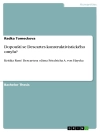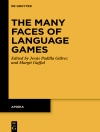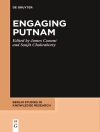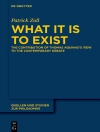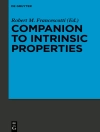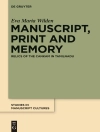This book offers a new and externalist perspective in ignorance studies. Agnotology, the epistemology of ignorance, and, more generally, ignorance studies have grown to cover and explore different phenomena and subjects of research, from known events in history and sociology of science to the investigation of ordinary reasoning and cognitive processing. Nonetheless, although interested scholars have discussed ignorance phenomena and their impact on cognition, most of them have only adopted an internalist perspective to approach this theme. Meanwhile, even though externalist perspectives on cognition flourished in recent literature, authors have paid little attention to the emerging field of ignorance studies. Ignorance has been generally left out from the inquiries on the extension of cognitive states, cognitive processes, and predictive reasoning. Thus, in this volume, we seek to merge the two growing areas of research and to fill this research gap fruitfully. By addressing the uncomfortable themes that pertain to ignorance and related phenomena through an externalist perspective, this book aims to provide much food for thoughts to cognitive scientists and philosophers alike, enriching the current range and reach of both ignorance studies and externalist approaches to cognition.
Table of Content
Chapter 1. Introduction: Externalist Perspectives on Ignorance and Cognition (Selene Arfini and Lorenzo Magnani).- Chapter 2. Relational Ignorance (Samantha Copeland).- Chapter 3. Creative Ignorance (Wendy Ross).- Chapter 4. Extended Ignorance (Duncan Pritchard).- Chapter 5. Mindshaping, Racist Habits, and White Ignorance (Michelle Maiese).- Chapter 6. Ignorance and (Im)Possibility (Vlad Glāveanu).- Chapter 7. Mind Invasion through Cognitive Integration: Facebook and the Exploita-tion of Users’ Ignorance (Giacomo Figà-Talamanca and Elisabeth Hunting).- Chapter 8. Institutions as Cognitive Niches: A Dynamics of Knowledge and Ignorance (Konrad Werner).- Chapter 9. How Do We Think about the Unknown? The Self-Awareness of Ignorance as a Tool for Managing the Anguish of Not Knowing (Alger Sans Pinillos and Lorenzo Magnani).- Chapter 10. How Do We Become Ignorant? Affording Ignorance Through Epistemic Actions (Selene Arfini).
About the author
Selene Arfini is a postdoctoral researcher at the University of Pavia, currently working on a project entitled “Ignorance in the perspective of the ecology of cognition: cognitive niches, the extended mind, and ignorance-based reasoning”. Her current work involves the foundation of a cognitively oriented epistemology of ignorance, with reference to the extended mind theory, cognitive niches construction studies, and a naturalized perspective on logic. She has established herself as an authority on the topic of ignorance in relation to cognition, recently publishing
Ignorant Cognition – A Philosophical Investigation of the Cognitive Features of Not-Knowing, Springer (2019) and editing a Synthese Topical Collection on “
Knowing the Unknown: Philosophical Perspective on Ignorance” (2020).
Lorenzo Magnani is a philosopher, epistemologist, and cognitive scientist, professor at the University of Pavia, Italy, and director of its Computational Philosophy Laboratory. His book
Abduction, Reason, and Science (2001) has become a well-respected work in the field of research on human cognition. The book
Morality in a Technological World has been published by Cambridge University Press (2007). A
bductive Cognition has been published by Springer in 2009 together with the more recent
Understanding Violence, 2011. A new monograph that completes his rich studies on abductive cognition has come out in 2017,
The Abductive Structure of Scientific Creativity, together with the Springer
Handbook of Model-Based Science (edited with Tommaso Bertolotti). He is the co-editor of the Special Issue for Synthese entitled K
nowing the Unknown: Philosophical Perspectives on Ignorance.



